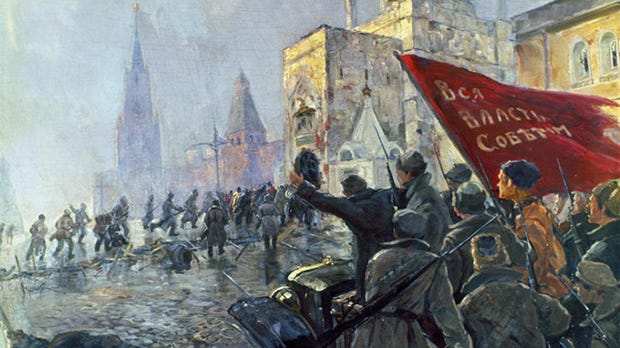I’m no revolutionary. No marcher I. Never protested, hardly ever voted. The procession of nitwits, variously amiable or malevolent, who presented themselves for office in the Australia of my youth convinced me of the wisdom of the slogan “Don’t vote. No matter who wins, it’s a politician.”
But the art of revolution: that’s something else. And I find myself, by accident, in the very heart of where some of the best of it was born. In fifteen minutes I can walk to the Louvre and admire Delacroix’s vast canvas of Liberty Leading the People. From our terrace I look down on the Theatre de l’Odeon, where Danny Cohn-Bendit – Danny the Red – convened the meetings that drove the student revolution – les evenements de ’68.
And the music! Wagner’s Rienzi overture, The Battle Hymn of the Republic, Bread and Roses! One could almost be stirred. Sadly, the manifs that periodically stream down our street, protesting some inequality or other, ignore the vast library of dissident music, and Hell No! We Won’t Go! hardly cuts it against the greats.
About writing on revolution, I’m ambivalent. The best literature of dissent is surely meant to be spoken, not read. Committed to paper, rhetoric too easily becomes rant. And yet…
The name of British playwright Trevor Griffiths (1935-2004) isn’t the first to come up when revolutionary literature is discussed. He wrote relatively little, and most of it was too flinty for the popular taste. Don’t look to him for happy endings or easy answers. Many of his plays were for British television, and even the people who commissioned them held them at arm’s length, like an ominously ticking parcel.
Take Occupations, his 1971 play about the attempts of Antonio Gramsci and other revolutionaries in ‘twenties Italy to improve conditions for workers. (An excellent 1974 production with Donald Pleasance is free on YouTube.)
A man named Kabak arrives in Turin from Moscow with gold, apparently to help the strikers, but spends it instead on bribes to local civil servants and factory-owners.
He brings with him his beautiful wife, a countess of the ancien regime, who’s dying. Is he Czarist then? And if a Communist, of which party? The Bolshevik Reds? The recidivist Whites? Gramsci comes to confer, a brilliant mind in a limping, twisted body. What next? I thought, and was about to turn it off, when the countess asks about Moscow.
Kabak replies with an evocation of…I’m not sure what. Perhaps an idealised Russia where revolution and royalty co-exist, and lion really does lie down with lamb?
“The Tsar was in residence in the early spring. A ball every night for a month.
The nights filled with the jangling of sleighs and the snuffling of
horses.
Then the greenness of leaf and grass over the city.
The river moving again, and then the Revolution moving again.
Soviets! An ecstasy of willed achievement.
The Whites brought to their knees ; the White enemy brought down like quail.
The iron brain of Lenin, hammering out the future.”
After that, I had to see the rest. It isn’t easy watching, but it riveted me.
Such was Griffiths' reputation that Warren Beatty asked him to write the screenplay for what became the Oscar-winning Reds (1981), about American Communist writer John Reed and his partner Louise Bryant, played by Beatty and Diane Keaton.
Griffiths fell out with Beatty, and estimates that only 45% of the finished film is his. I like to think it includes this scene, which never fails to move me. His passion; her still, loving face…. It could almost make me march.





Thanks John. Are you anticipating a revolution in France any time soon?? We had our own revolutionary writer and leader in Ireland...Padraig Pearse. He was executed in 1916.